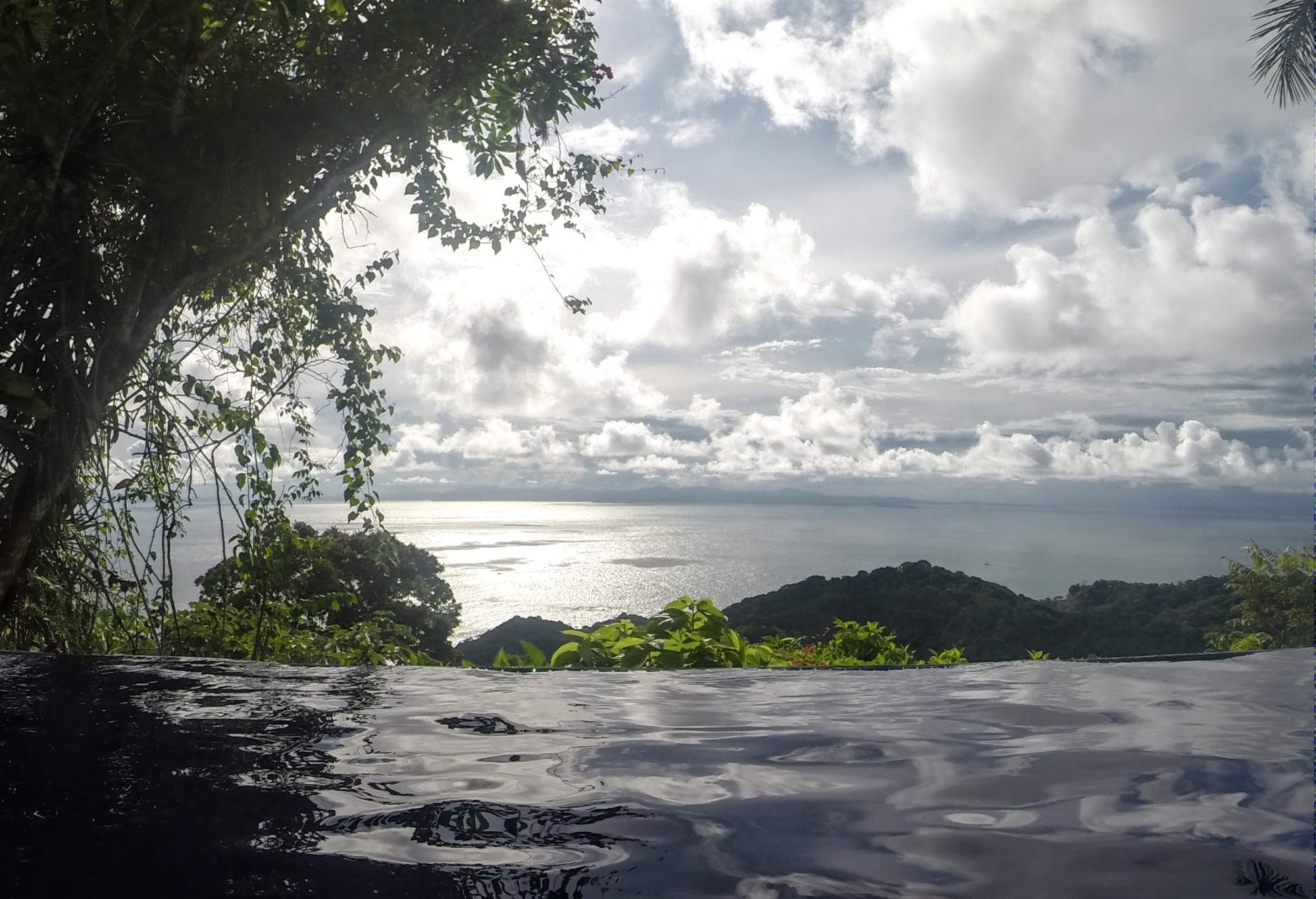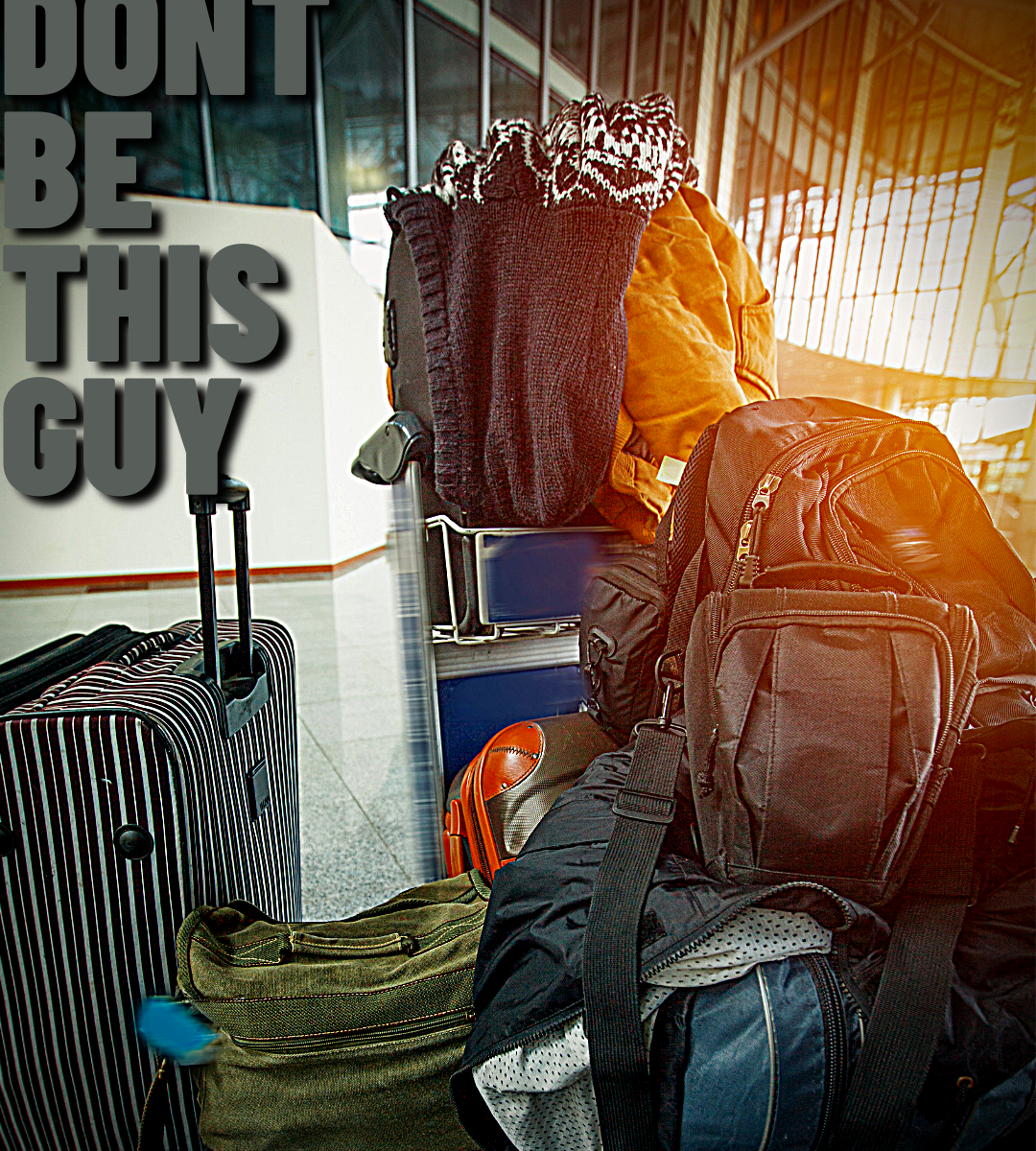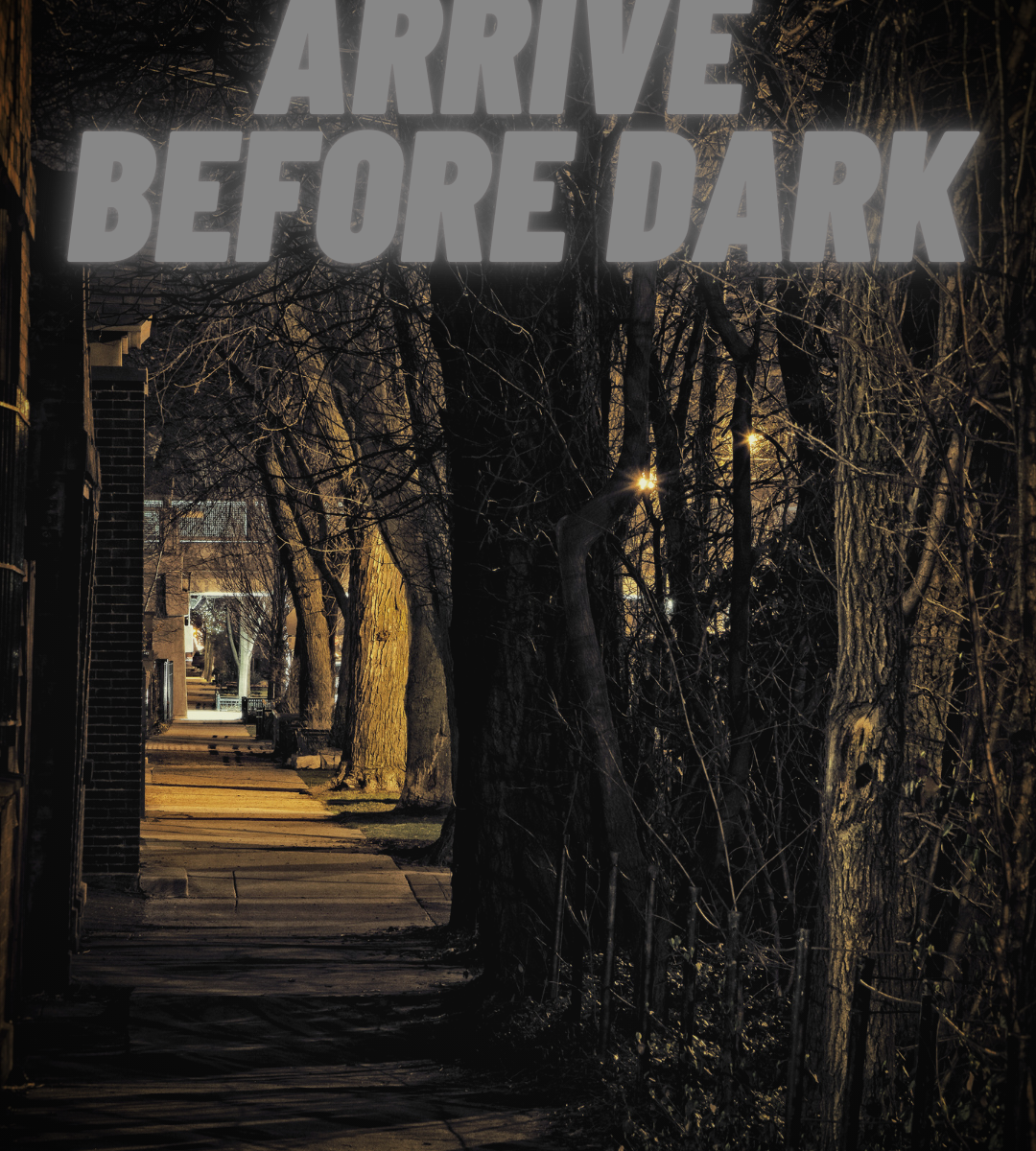I always recommend people travel with a single bag. Traveling with more than one mag starts to weigh you down and decreases your mobility. That’s traveling with a backpack or sling bag of some kind is so beneficial.
Back packs are easier to carry and move with than roller bags in an emergency or if transportation is slim and you have to walk. Also in some countries the transportation options are not like the USA or Europe and do not have the cargo space for large roller bags so keep this in mind when your packing.
If you pack correctly one bag is all you need. I am talking ranger rolls and packing cubes. This will drastically improve the efficiency of use in the bags you are packing. A major component of that is also to only take what you need to. Most people drastically over pack when they travel somewhere and usually don’t end up using half of what they bring. Especially when you are staying with friends or family. Anything you don’t bring, forget to bring, didn’t think that you would need, they likely will have one or something that will make do. Even if you are not staying with someone you know most hotels and BnBs will have hair dryers, and other small appliances for you to use you sometimes just have to ask the front desk.
When it comes to clothes, go by the rule of threes. That is three tops, three bottoms, three underwear three pairs of socks. Wearing one set and packing the other two. Try to choose colors and Items that you can interchange with each other if need be. Depending on the situation for the trip that may change a little bit. If you need to bring a jacket or coat try and wear it not pack it to save space. and if you are going to a cooler or colder destination plan your clothing around layering instead of huge coats and this will also save you space.
Now once you get to where your staying you can just pull your packing cube(s) of clothes out and throw them in a drawer and the rest of the stuff in your bag comes with you in case you need it or to protect your self from theft.
If you are not staying in one place for long you should still be light enough to just carry everything with you.
Every where I’ve been has a hotel laundry room or a local laundry mat you can use to wash your clothes if you trip is longer than 3-4 days, or you can wash your clothes in a sink (some clothes are even made for that purpose now)
All that being said some times needing a second bag is unavoidable for a certain situation. Maybe its a business trip or a special occasion and you need to take special equipment, or supplies that wont fit in your single bag.
When that happens I down size my back pack/sling bag to a smaller one (one that can still hold any of my emergency and other essential supplies or anything that you cannot live with out if you ditch your second bag). This makes the sling bag my “personal item” that can go under the seat.
Then your second bag should be sized to meet the airlines carry on standards if at possible. Providing what you have to bring is carry on legal and will fit. This way you can still bypass the ticket counter on departure and the baggage claim on arrival. This “carry on” that holds everything else including the additional “stuff” that forced you into this situation in the first place.
I recommend avoiding checking bags when all possible because whether its life threatening or not loosing you bags can put a damper on your trip whether you think it really matter or not.
Packing lite keeps you light and mobile should an emergency arise. This way you don’t have to ditch some of your gear or possessions or get stuck in a situation because you don’t want to leave your stuff behind… Trust me it happens humans are weird when it comes to fight or flight and their possessions.
If you enjoyed this post take a look at our TRUSTED RESOURCES page. If you decide to use any of the links and purchase anything we may get a small commission that helps support the site.
Sign up for our email list and you will receive exclusive content that adds to the articles we post here.


